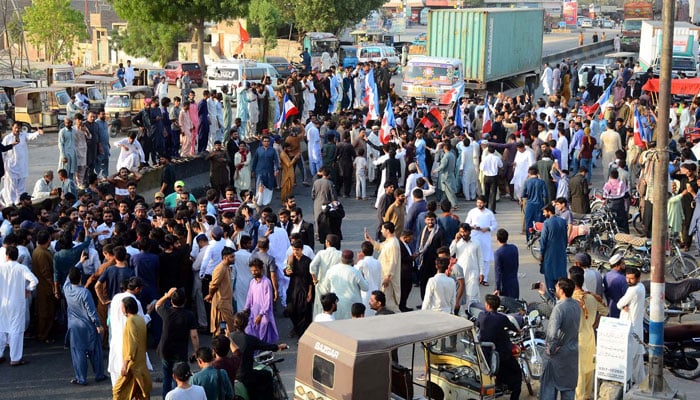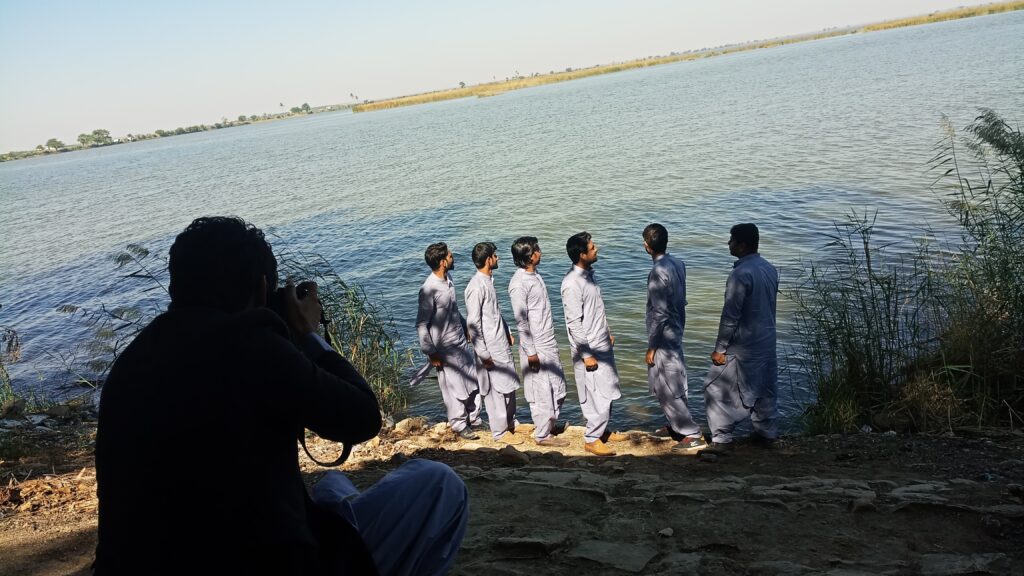It was a good news that CCI Halts 6 canals plan on Indus. Following 10 fierce days of marches, rallies, and mobilisation by the lawyers and civil society organisations of Sindh called off their protest against the dubious building of six new canals on the Indus River system by the Punjab government with the federal government’s support and funding. The notification came soon after the Council of Common Interests (CCI) on Monday rejected prior ECNEC approval and guaranteed all provinces inclusive, consensual policymaking on water management.
For many in Sindh, the demonstration represented more than just a response to a government initiative to construct canals to irrigate desert lands for the so-called corporate farming under the “Green Pakistan” initiative. It was a protection of historical water rights, ecological balance, and constitutional guarantees—a mass affirmation that unilateral Indus River choices would not go unpunished. Sindh has been crying foul for decades about the stealing of its share in Indus waters.
The Economic Coordination Committee of the National Economic Council (ECNEC) decision on February 7, 2024, which was later signed by President Asif Ali Zardari after the 2024 General Elections, to allow the building of six canals across the Indus River, set off the demonstrations. Supported by a water availability certificate issued by IRSA (Indus River System Authority) on January 17, 2024, this action was seen in Sindh as an attack on the province’s constitutional and historical rights.
Sindh is located at the lower riparian area, where most of the time in a year water is not available, especially downstream of the Kotri Barrage.
Environmentalists, bar associations, political workers, and civil society organisations quickly saw the ruling as not only technically poor but also in breach of the Water Apportionment Accord of 1991.

Lawyers lead the charge to begin mobilisation.
Led by the president of Karachi Bar Association, Amir Nawaz Waraich, the Sindh Bar Council and nationalist political parties of Sindh that labelled the ECNEC ruling “unconstitutional and anti-federation” organised protests, rallies, and sit-ins across Sindh. First coordinated response: Lawyers in Karachi, Hyderabad, Sukkur, Larkana, and Mirpurkhas started a group protest campaign with sit-ins at courts.
Expressing support and stressing the legal aspects of the matter, soon the Sindh High Court Bar Association, Hyderabad District Bar, and Women Lawyers Forum joined in. Demanding withdrawal of the ECNEC notification, the agitators held press conferences and panel debates, and letters to the Chief Justice of Pakistan ensued.
Civil Society and Environmental Voices Join In
As civil society groups, student organisations, and environmental specialists joined the campaign, it rapidly grew. Rallies in Hyderabad, Thatta, Jamshoro, and Badin and other districts stressed that building more canals upstream will lower already declining water flows into Sindh’s delta area – aggravating sea incursion, harming agriculture, and jeopardising drinking water supplies.
Experts have already warned of permanent damage to the environment: Sea intrusion in Thatta district has already inundated millions of acres of agricultrue land due to non-flow of River Indus water below the Kotri barrage. The Indus Delta is dying. This goes beyond infrastructure or irrigation here. It concerns the survival of one of the biggest estuaries in the world, dependent on Indus freshwater outputs.
From Rallies to Resistance: 10 Days of Protest
Cities and villages all throughout Sindh saw nonviolent yet forceful protests 10 days in a row. Protest camps were established at Babarlo bypass and some other thoroughfares. Poets and cultural activists read lines on the holiness of the Indus. Gatherings chanted slogans of “Darya Khatir Jhero Aa” (we fight for the sake of the river).
Recently, a varied coalition of non-political groups—including students, fishermen’s organizations, women’s collectives, and human rights networks—coordinated a sequence of nonviolent protests in upper Sindh. Under the unrelenting heat of the area, Babarlo camp, the core of the protest, gathered sizable numbers of people braving days and nights. Though the blockage created a great disturbance and transportation trucks were parked on both sides of the protest site, the mood was very peaceful and orderly.
Organizers made great efforts to preserve harmony and kindness. Thanks to the volunteers of the demonstration, stranded drivers ate three meals a day, and none of their vehicles were harmed. Local people from surrounding towns and villages banded together to assist the protestors, therefore guaranteeing a consistent supply of food and drink all through the event. The orderly behavior and humanitarian attitude of the demonstration caught attention as they emphasized the organizers’ dedication to nonviolent campaigning and community cohesion.

The ruling Pakistan Peoples Party (PPP) and its provincial government apparently supported the demands, but its police took action against some protests in other parts of the province, including in Malir Karachi. Seen as a reaction to Sindh’s unified opposition, the federal government convened the CCI meeting on May 2, but later called it urgently on April 28.
The CCI issued a notification guiding the Planning Division and IRSA to return the ECNEC approval and water certificate. It also emphasised that the Water Accord of 1991 and Water Policy of 2018 remain the fundamental documents for any such projects: – All provincial concerns will be addressed through constitutional channels; – No new canals among provinces will be constructed without mutual understanding; – A federal-provincial committee is forming to propose long-term solutions for Pakistan’s agricultural and water management needs.
Widely applauded across Sindh, this comment signaled a dramatic reversal from the previous federal posture.
A Historical Consensus
Legal analysts say the CCI’s ruling is a triumph for federalism and constitutionalism. The declaration was a validation of Sindh’s long-standing stance: that water distribution and development cannot proceed without provincial agreement, ecological due diligence, and historical understanding of downstream risks.
Officially calling off their demonstration after the CCI judgement was announced, the Sindh Bar Council, together with associated civil society groups, released a joint statement by protest organizers that said, “Today the Constitution has won; our protest was against exclusion rather than growth.”
But organisers also stressed continuous vigilance. Some experts believe it was a delaying tactic of the federal government, as it has not scrapped it but deferred it.
A federal-provincial committee might signal the start of a new chapter in inter-provincial collaboration. Not just bureaucrats and engineers, the water specialists that the group include ecologists, hydrologists, and climate experts.
Concurrent demands for transparency in IRSA’s operations, updated water flow data sharing, and real-time monitoring of upstream-downstream allocations. Building local water storage and conservation systems within provinces instead of big infrastructure projects causing provincial rifts is also attracting fresh attention.
Democratic Tool: Protest – CCI Halts 6 Canals Plan on Indus
“I congratulate people for this success, as Almighty Allah has given us a great success. Let’s celebrate it,” remarked Amir Nawaz Waraich, Karachi Bar’s President while announcing the historic protest at Babarlo.
The events of the previous ten days remind us strongly of how democratic pressure, legal mobilisation, and interprovincial dialogue may influence national policy. Originally a provincial protest against canal building, what started out as a reaffirmation of constitutionalism, shared governance, and ecological justice came out as more.
For Sindh’s civil society, this event marks not just a long-overdue respect of their right to be heard but also a temporary success. The careful eye of the people who rely on the Indus will also flow alongside it, for water, for civilization, and for life itself.
Photos courtesy of Geo News website and Facebook




